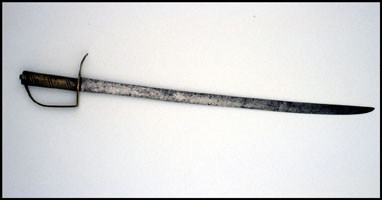The Battles of Lexington and Concord

The Battles of Lexington and Concord, Massachusetts, fought on April 19, 1775, have gone down in history as the opening conflict of the American War for Independence-the proverbial "shot heard 'round the world" celebrated by Ralph Waldo Emerson.
Acting on orders from Major General Thomas Gage, military governor of the colony, to destroy arms and ammunition stored in Concord, a detachment of nearly 800 British infantry under the command of Lieutenant Colonel Francis Smith set out from Boston late on the night of April 18. Alerted by Paul Revere and several other express riders, local militia assembled in both villages and successfully hid most of their military stores. An advance guard, 250 men commanded by Major John Pitcairn, first encountered Lexington's militia company (perhaps 70 men) on its village green, effectively barring the route to Concord. Pitcairn, wanting to avoid any engagement, ordered the militiamen to lay down their arms and then someone fired (each side later claimed that it came from the other), perhaps by accident. It led to a brief exchange of volleys between the regulars and the militia that was quickly halted by Pitcairn. Nevertheless, eight militiamen were killed and one British soldier wounded. The militia then dispersed, allowing the regulars to move on to Concord, where they seized the few supplies they could find (500 pounds of musket balls were the only military stores they turned up). A larger militia force then engaged the regulars there, at the Old North Bridge, where the first British soldiers were killed. Smith then made the decision to return Boston.
The regulars' march back to the city quickly turned into a nightmare as militiamen lined the route and poured a withering fire into the redcoated column. Smith's original force dissolved into a ragged pack before a relief brigade and two artillery pieces under the command of Brigadier General Hugh Percy met them near Lexington. For much of the rest of the 15-mile trek back to Boston, militiamen battered the regulars, although at times the British troops were able to engage the colonials in some vicious hand-to-hand fighting. Percy kept his cool and the force remained intact until his men reached safety in Charlestown, just across the Charles River from Boston. By then, 273 regular soldiers and 95 militiamen had become casualties.
At the end of April 19, the colonial militia did not return to their homes. Reinforced by hundreds of militiamen from throughout New England, they formed into an army and proceeded to surround Boston, cutting Gage off from the mainland. The consequent Siege of Boston lasted for almost a year, until the British evacuated on March 17, 1776.





